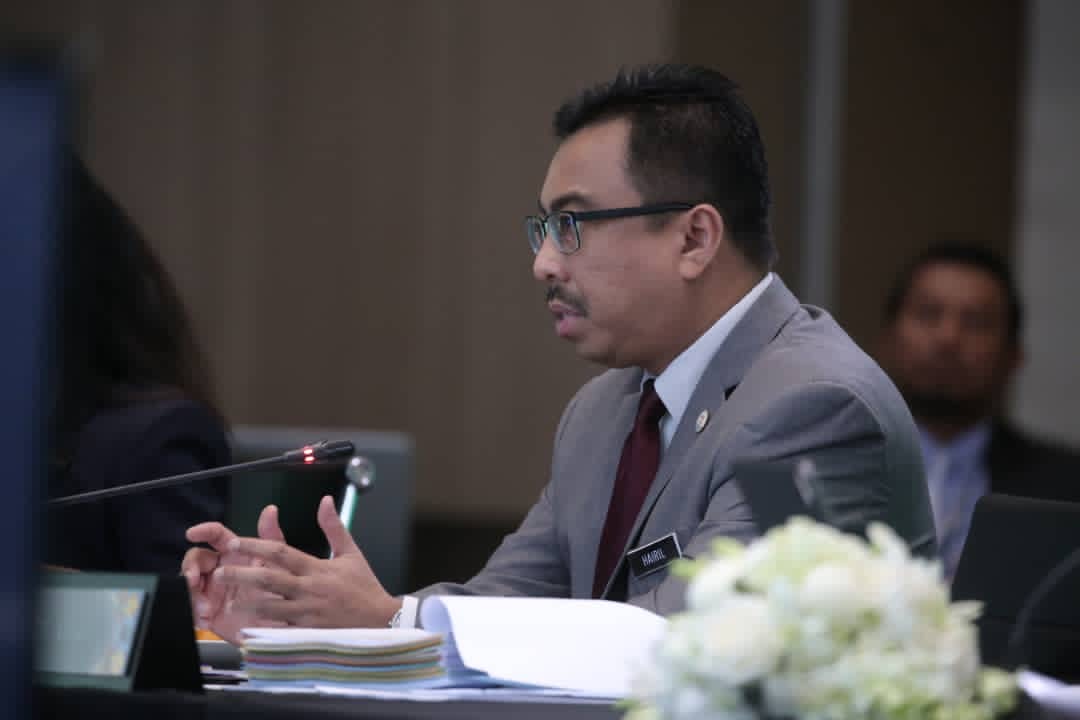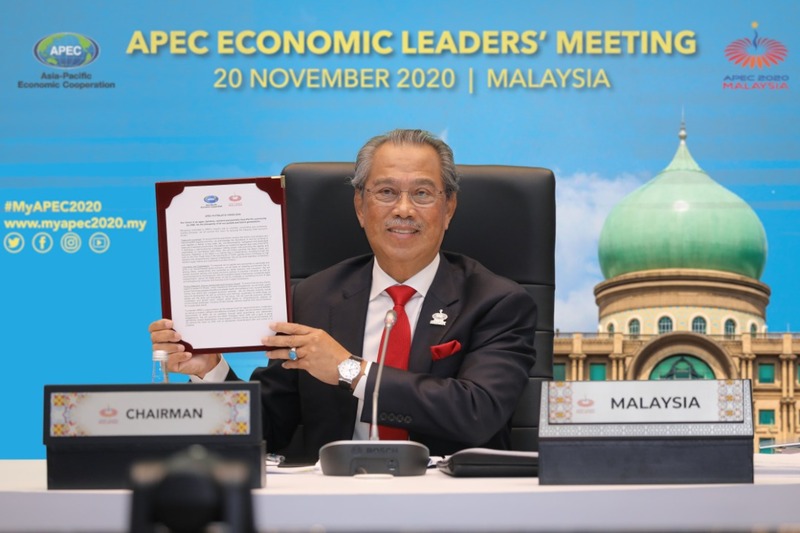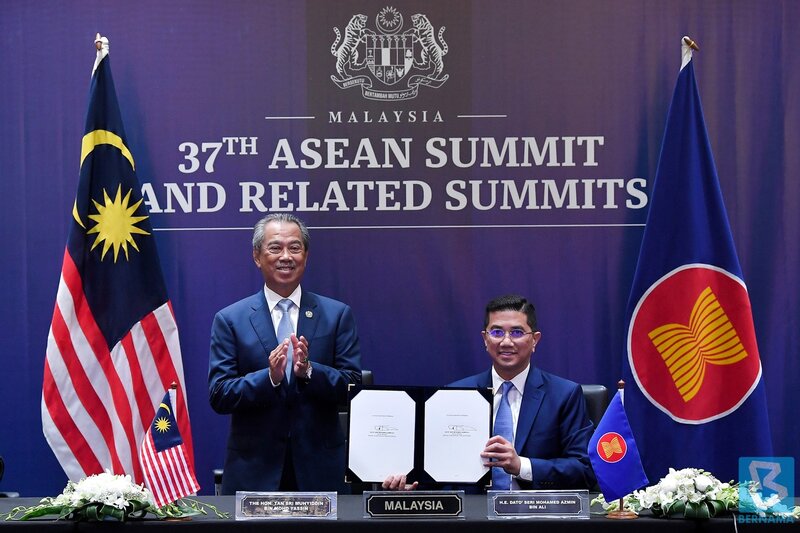Structural Reforms Catalyst for Business Recovery
The Asia Pacific Economic Cooperation (APEC) Ministerial Meeting Saw Discussions on Business Prosperity, Innovation, Digital Economy and Digital Technologies

Senior Minister and Minister of International Trade and Industry (MITI) YB Dato’ Seri Mohamed Azmin Ali chaired the APEC Ministerial Meeting
It was a clarion call by decision-makers of various economies in the Asia Pacific – if things are to change for the better, structural reforms must be made.
That was the clear message that summarised the Asia Pacific Economic Cooperation (APEC) Ministerial Meeting (AMM) that met virtually on November 16, 2020.
Chaired by Senior Minister and Minister of International Trade and Industry (MITI) YB Dato’ Seri Mohamed Azmin Ali, all the APEC ministers highlighted the forum's achievements as it provided realistic visions following an adverse 2020.
Economies were disrupted since early this year, leaving many jobless and businesses collapsing as the world battles the COVID-19 pandemic which has resulted in over 1.3 million deaths to date.
Asia Pacific economies, like many others worldwide, are slowly finding their footing as their citizens adapt to new norms, heavily influenced by digitalisation and technology.
It is therefore critical to increase economic opportunities for all segments of society as the ministers stressed that structural reforms serve as a key driver for business recovery. Structural reforms, which include amendments to local laws and regulations, will result in a strong, balanced and inclusive growth.

Ministers shared their thoughts on challenges faced by various economies
"We urge economies to take pragmatic steps to advance the agenda in 2021 and beyond, including by finalising the enhanced structural reform agenda," the ministers said in the joint ministerial statement.
Barriers that stop businesses and economies from thriving must be removed. Women, as the ministers rightfully highlighted, still faced significant challenges that affect their participation in the economy.
"We are committed to undertake the necessary steps to address these challenges and advance efforts to remove existing legal, regulatory and structural barriers faced by women in the economy, in workforce participation and entrepreneurship.
"We reaffirm our commitment to adopt approaches, substantive measures and policies that focus on economic recovery efforts to benefit and empower women and girls," the statement added.
As such, the ministers said the La Serena Roadmap for Women and Inclusive Growth Implementation Plan would be executed to realise the full potential of women and advance their full and equal participation in the economy.
But it doesn't stop there. Providing opportunity alone is insufficient as it must be matched with a fitting ecosystem.
The role of the digital economy, the power of the Internet and the might of technology, generally, have been evident in this pandemic era.
The ministers recognise the need to safeguard and support innovation while keeping security in mind. The meeting also pointed out the need to strengthen health systems and the quality of health care through digital technology.
"There is an urgent need to enhance access to opportunities stemming from the digital economy and develop innovative digital ecosystems to harness new and emerging digital technologies,” the ministers said.
They encouraged the application of new technologies to drive innovation to expedite work towards improving digital inclusion, increasing competency in digital skills and narrowing the digital divide as these are core drivers for inclusive economic participation.
"We instruct senior officials to accelerate the implementation of the APEC Internet and Digital Economy Roadmap (AIDER) and welcome the APEC Roadmap on Digital Financial Inclusion."
The ministers also urged APEC committees and sub-fora to be more effective and responsive to future challenges and forward-looking.

The forum was held virtually as ministers were unable to travel due to the Pandemic
These messages are important, coming from a forum that was held virtually as nations locked their borders earlier this year to curb the spread of the coronavirus.
And just like the hosting of APEC 2020, COVID-19 has also brought about significant changes to the present working environment.
Economies have realised the importance of ensuring productivity is not severely disrupted during such times, especially where there is a reliance on manpower between nations.
This was singled out by Vietnam's Deputy Prime Minister and Foreign Affairs Minister Pham Binh Minh who said that economies depended on one another. He added APEC should continue promoting open and free trade and investment, regional economic connectivity and people-centred economic growth.
Hosting for the second time, Malaysia stayed true to APEC's theme "Optimising Human Potential towards a Resilient Future of Shared Prosperity: Pivot. Prioritise. Progress".
Entertaining leaders and representatives from various economies in different time zones, Malaysia's ability to host APEC online successfully has been set as a benchmark as New Zealand will also host next year's edition in a similar fashion.
Malaysia is a founding member of APEC that was formed in 1989. The country first hosted APEC in 1998. MITI is the national secretariat for this year's edition.













